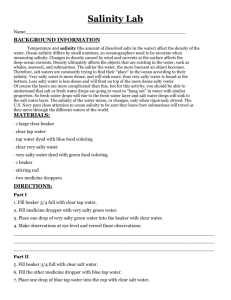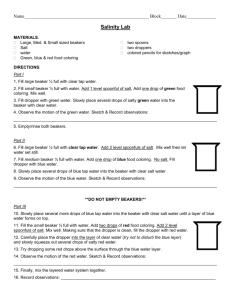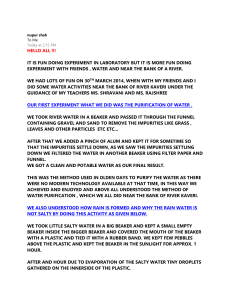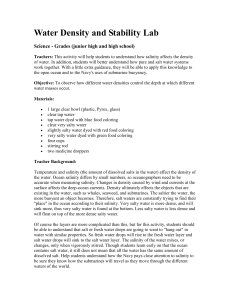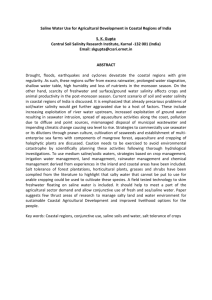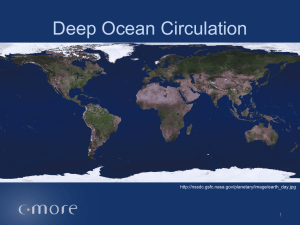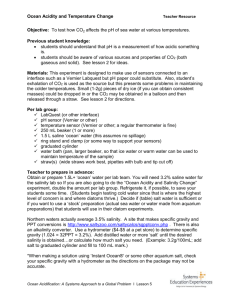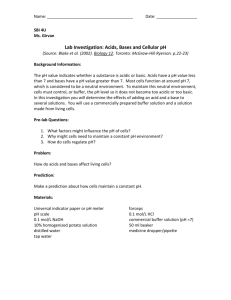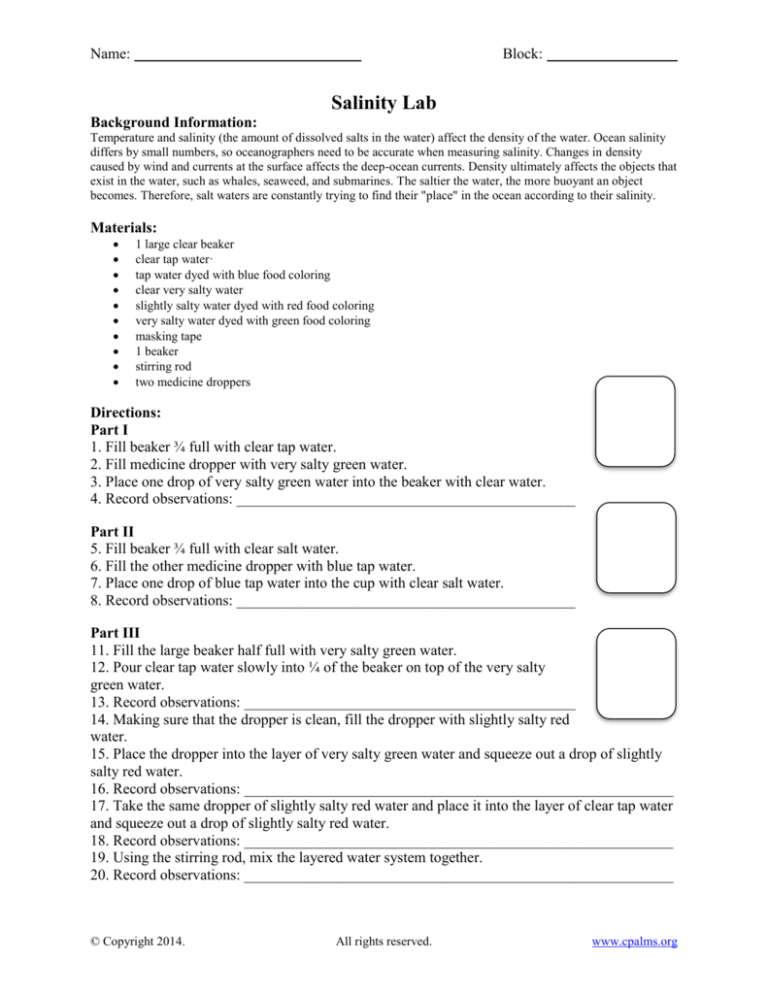
Name:
Block:
Salinity Lab
Background Information:
Temperature and salinity (the amount of dissolved salts in the water) affect the density of the water. Ocean salinity
differs by small numbers, so oceanographers need to be accurate when measuring salinity. Changes in density
caused by wind and currents at the surface affects the deep-ocean currents. Density ultimately affects the objects that
exist in the water, such as whales, seaweed, and submarines. The saltier the water, the more buoyant an object
becomes. Therefore, salt waters are constantly trying to find their "place" in the ocean according to their salinity.
Materials:
1 large clear beaker
clear tap water·
tap water dyed with blue food coloring
clear very salty water
slightly salty water dyed with red food coloring
very salty water dyed with green food coloring
masking tape
1 beaker
stirring rod
two medicine droppers
Directions:
Part I
1. Fill beaker ¾ full with clear tap water.
2. Fill medicine dropper with very salty green water.
3. Place one drop of very salty green water into the beaker with clear water.
4. Record observations: _____________________________________________
Part II
5. Fill beaker ¾ full with clear salt water.
6. Fill the other medicine dropper with blue tap water.
7. Place one drop of blue tap water into the cup with clear salt water.
8. Record observations: _____________________________________________
Part III
11. Fill the large beaker half full with very salty green water.
12. Pour clear tap water slowly into ¼ of the beaker on top of the very salty
green water.
13. Record observations: ____________________________________________
14. Making sure that the dropper is clean, fill the dropper with slightly salty red
water.
15. Place the dropper into the layer of very salty green water and squeeze out a drop of slightly
salty red water.
16. Record observations: _________________________________________________________
17. Take the same dropper of slightly salty red water and place it into the layer of clear tap water
and squeeze out a drop of slightly salty red water.
18. Record observations: _________________________________________________________
19. Using the stirring rod, mix the layered water system together.
20. Record observations: _________________________________________________________
© Copyright 2014.
All rights reserved.
www.cpalms.org
Salinity Lab Answer Key:
Part I
4. Sinks to bottom
Part II
4. Floats to top
Part III
3. Fresh tap water will float on top of the salty water layer.
6. The drop of slightly salty water moves up above the layer of very salty water, but stays under
the fresh water layer.
8. Slightly salty water will sink in the freshwater layer, but stay above the layer of very salty
water.
10. After continued stirring, there are no longer distinct water layers; they all mix together (color
changes are a physical change and do not effect salinity or densities).
© Copyright 2014.
All rights reserved.
www.cpalms.org

